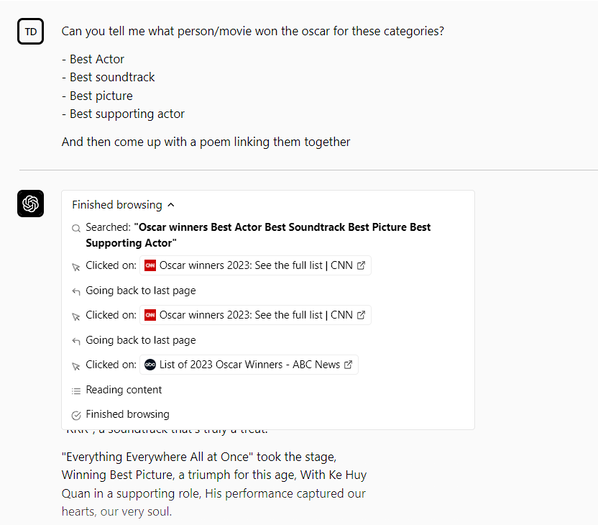The most significant plugin is OpenAI's first-party web-browsing plugin, which allows ChatGPT to retrieve information from the internet to answer various questions posed to it. The plugin uses the Bing search API to retrieve content from the web and cites its sources in ChatGPT's responses. However, there are concerns that a chatbot with web access may be risky, as previous experiments by OpenAI and other companies have shown that web-connected language models can be incentivized to cherry-pick data from unreliable sources and even delve into offensive content and conspiracy theories.
OpenAI admits that web-enabled ChatGPT might perform undesirable behaviors, such as sending fraudulent and spam emails, bypassing safety restrictions, and generally "increasing the capabilities of bad actors who would defraud, mislead or abuse others." To prevent this, the company has implemented several safeguards informed by internal and external red teams.
The launch of these plugins is significant because it extends ChatGPT's functionality beyond the information within its training data, allowing it to become more capable in answering questions and performing various tasks. However, there are concerns about the legal risk of profiting from unlicensed work on which ChatGPT was trained, as its dataset contains public websites. But plugins potentially address that issue by allowing companies to retain full control over their data.
Author
-Anurag

 RSS Feed
RSS Feed